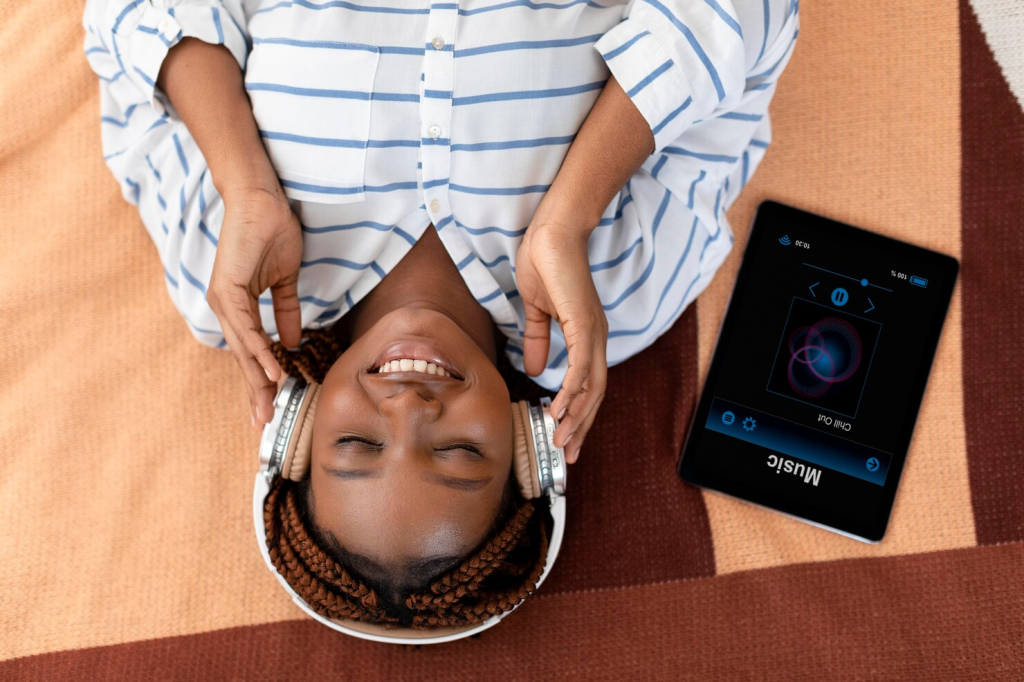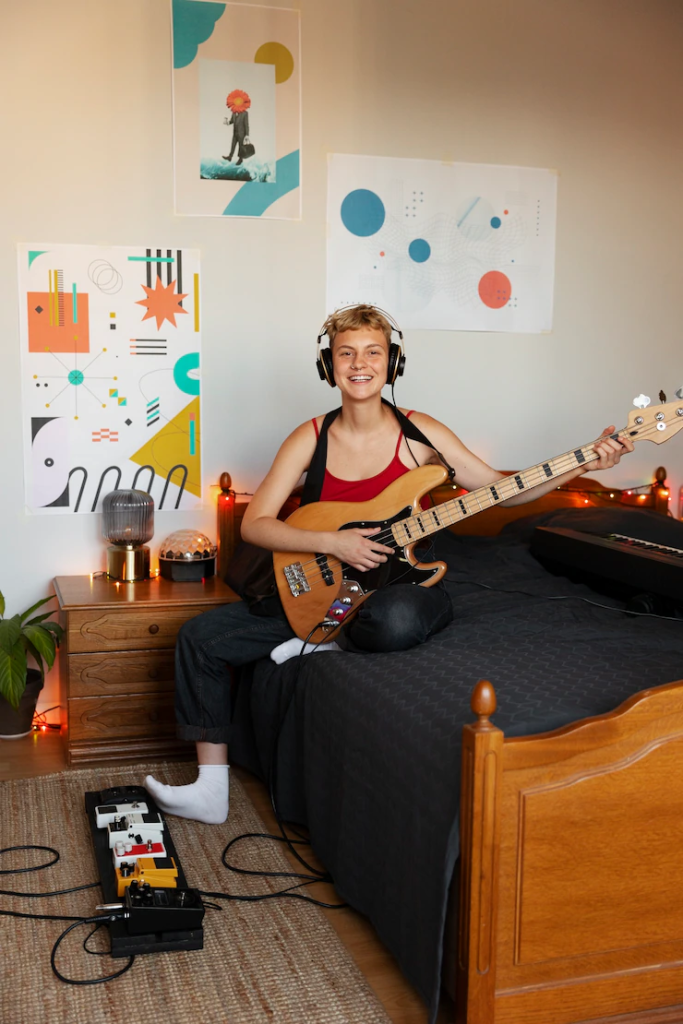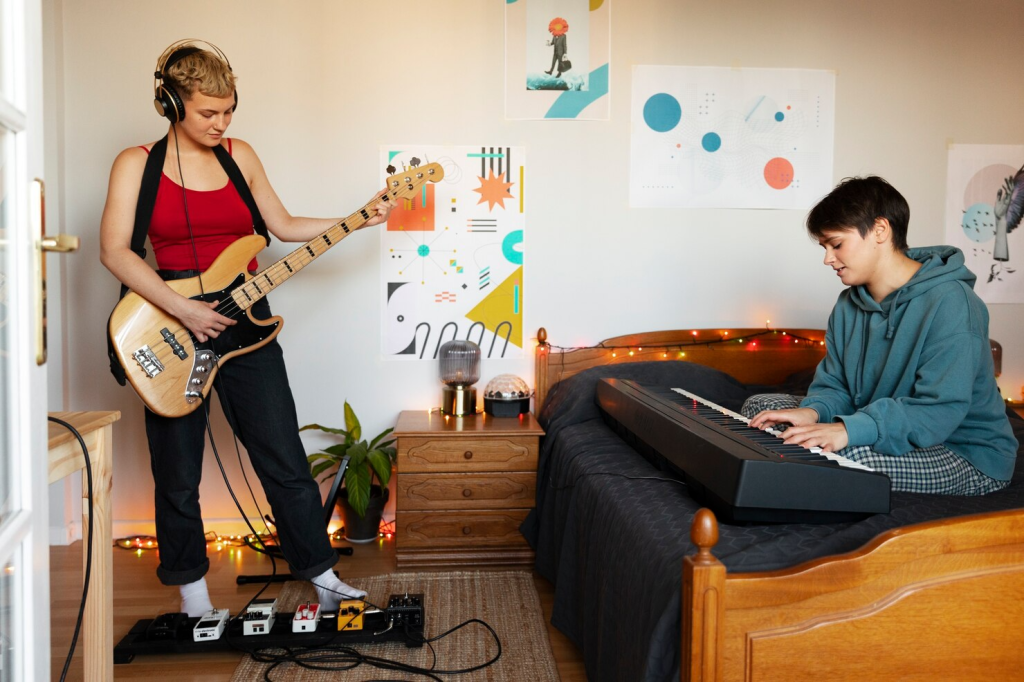Music therapy and its benefits
Music therapy is a therapeutic approach that uses music to help promote health and well-being. It covers a range of musical activities such as making music, singing, dancing, listening to music, or talking about music. It is an alternative approach that is part of a larger treatment plan.
Music Therapy is defined by the American Music Therapy Association as “the clinical and evidence-based use of music interventions to accomplish individualized goals within a therapeutic relationship.” It uses music to treat physical, psychological, cognitive and social needs. It can also improve communication in that people undergoing music therapy can create their own musical language in order to express themselves.
The different kinds of music therapy are:
Music therapy has many benefits. It fosters a sense of wellness and helps patients handle stress. It reduces the feeling of pain and helps patients express themselves better. It improves communication and memory and helps with physical rehabilitation.
Music therapy is used as supplementary therapy to help treat illnesses and conditions such as:
- Acquired brain injury
- Addition or Substance Abuse
- Anxiety
- Autism Spectrum Disorder (ASD)
- Dementia or Alzheimer’s Disease
- Depression
- Parkinson’s Disease
- Sleep Disorders
- Recovery from surgery
The Hummingbird Wind Chimes creates pleasing sounds that calm your mind. They come in different colors and are a beautiful addition to your home. Check them out.
Check out our most popular blog posts.

B is for Bonsai
B is for Bonsai 🌳 The word Bonsai is a Japanese word that means tree planting. Derived from the Chinese art form Penjing. But there

The Show Must Go On
Are you an entertainer? Dreaming of money, fame and glamor? Do you have what it takes to be an entertainer? Be it music, theater, comedy

Summer Calendar
Tips for a healthy summer Although coughs have a role in cleaning out irritants and infections from the body, a persistent cough can be irritating
HOW LONG DOES THE BATTERY LAST?
Up to 16 HOURS depending on the wind speed setting. 4000mAh Large capacity batteries provide 4-16 working hours’ duration (depending on different speeds). The Neck Fan has 3 SPEED levels. Adjust appropriate fan speed by pressing the power button repeatedly.
IS IT NOISY? HOW LOUD IS IT?
With the ultra-quiet design, we have meticulously manufactured the motor so that noises stay in a range of 25-40dB. It is quiet enough to hear your own breath.
IS IT HEAVY?
It’s not heavy, and it’s comfortable to wear. At Tap Trendy, comfort in our products is our first priority. All of our products are sophisticatedly designed so that they can deliver you the most enjoyable experience.
CAN I DO SPORTS WITH IT ON?
Can’t find a better neck fan to exercise with. Talk is cheap, try it on! Wearing Tap Trendy™ Neck Fan to your gym will change your life!
HAVE OTHER QUESTIONS?
Email us at: support@taptrendy.com







